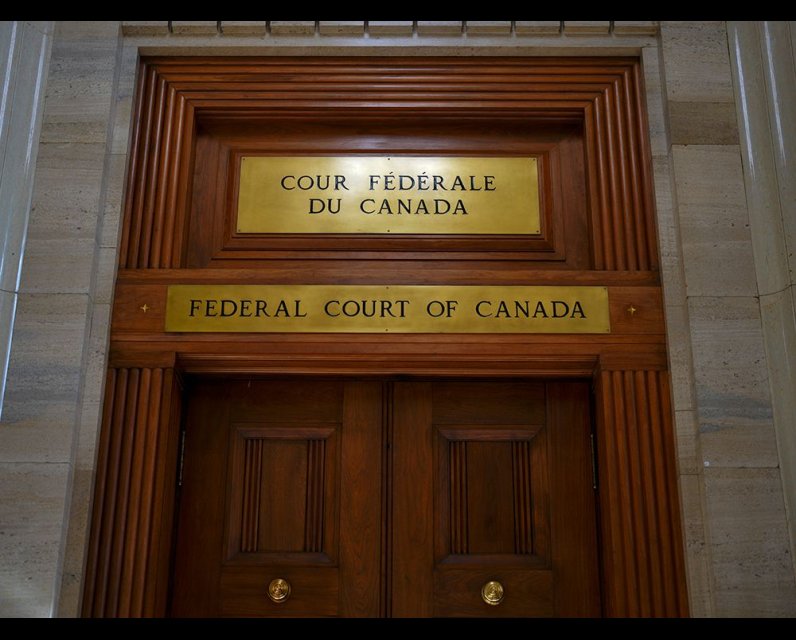Immigrant ordered deported in 2017 for 'serious criminality' is still in Canada

A permanent resident of Canada with multiple assault convictions under his belt who was ordered deported more than eight years ago after striking another nightclub patron with a bottle, breaking his tooth and injuring his face, is fighting for his release from the Toronto Immigration Holding Centre.
Ryan Anthon Fyfield, who used scissors to cut off an ankle monitor he was issued in the fall of 2023 and employed an axe in March of 2024 to tear up the basement where he was living, is slated for a detention review next week.
Fyfield, who was born in St. Kitts and Nevis in 1994 and came to Canada when he was 11, won a recent judicial review of the Immigration and Refugee Board’s Aug. 29 order keeping him at the Rexdale Boulevard detention centre. But the judge sent the matter back to a different detention panel for reconsideration in the last week of September.
The Canada Border Services Agency refused this week to divulge the outcome of that hearing, citing privacy reasons, but Fyfield has another detention review slated for Oct. 10 and that wouldn’t happen if he’d been released last month.
Legal Aid Ontario, which represents Fyfield, refused Friday to comment on his case.
Fyfield, who has struggled with a crack cocaine addiction since 2014, has been detained since this past June “on the grounds that he is unlikely to appear for his removal and that he poses a danger to the Canadian public. This finding has been upheld at each of his detention review hearings to date,” Federal Court Justice Angus Grant wrote in a recent decision.
Before leaving his Caribbean birthplace, Fyfield’s “mother had a series of violent and abusive partners,” according to Grant’s Sept. 19 decision, which notes that when Fyfield was seven, “he witnessed his mother’s partner beat her so severely that she was hospitalized and ultimately died from her injuries.”
In 2005, when he was 11, his father and stepmother brought Fyfield to live with them in Leamington, Ont. “He became a permanent resident of Canada in 2010, when he was 16.”
Fyfield left home at 18 “and began having regular encounters with the criminal justice system,” Grant said. “Between 2012 and 2014, he was convicted of assault on four occasions, as well as multiple counts of ‘failure to comply’” with court orders.
“Over the past many years, (Fyfield) has had numerous encounters with immigration authorities, and with the criminal justice system.”
His June 2014 conviction for the nightclub bottle assault “triggered a review of his immigration status,” said the judge.
In February 2016, authorities found Fyfield was “inadmissible to Canada for serious criminality.”
The Canada Border Services Agency issued a deportation order for him in April 2017.
He “appealed his deportation order to the Immigration Appeal Division and was granted a four-year stay of removal in 2017 on several conditions, including completing an anger management program, abstaining from drugs, and keeping the peace,” Grant said.
But after that, Fyfield “experienced episodes of homelessness, and continued to struggle with substance use and his mental health,” said the judge. “He failed to keep the Canada Border Services Agency (CBSA) up to date on his address, to attend all of his mandatory CBSA check-in meetings, and to report new criminal charges to CBSA.”
As a result, in November 2019 “the CBSA requested an early reconsideration” of his stay of removal, but Fyfield didn’t show up for the hearing and the agency issued a warrant for his arrest.
“Since that time, (Fyfield) has had multiple encounters with the criminal justice and immigration systems, largely related to his failures to comply with orders,” Grant said.
Fyfield has “cycled between periods of living in immigration detention, some periods living in the community, and periods living in community residential facilities,” said the judge. “His stays at these facilities ended because of drug relapses, expressing suicidal ideation, associating with people with criminal histories, erratic behaviour, and altercations with other residents.”
As the CBSA tried to proceed with his removal from Canada, Fyfield was provided with multiple opportunities to submit a pre-removal risk assessment, his last-ditch bid to stay in Canada.
The judge noted a decision on one was still outstanding last month, leaving Fyfield’s immigration status in Canada “unclear.”
Fyfield was released from the IHC this past March, Grant said, “and placed at Launchpad, a residential drug treatment facility in Windsor.”
But he was kicked out in June after two drug relapses.
Fyfield “made arrangements to stay at an alternative facility called Essex Manor,” but just after he got there, a CBSA agent arrested him and took him back to the IHC.
Fyfield argued he should be allowed to live at Essex Manor.
But an immigration official decided to keep him at the IHC instead, saying Essex Manor doesn’t provide “structured supervision” for residents “and that individuals are free to come and go as they please.”
The same decision maker “went on to observe that the home is ‘essentially an arrangement where (the woman who runs it) provides room and board to people at what I perceive to be low-market rent.”
After several disputes with IHC guards, Fyfield was transferred this past August to Maplehurst Correctional Complex.
He was assaulted twice by Maplehurst inmates in August, said the judge. One of the assaults left him with a broken leg.
At his Aug. 29 detention review hearing, Fyfield “explained that the other inmates at Maplehurst frequently asked him why so many ‘cops’ were coming to speak with him. They were referring to the CBSA officers who conducted routine check-in visits with (Fyfield) on the range, in the presence of other inmates. (He) had tried to explain to the other inmates that these were immigration officials, but he felt that the other inmates still suspected him of being an informant.”
He was transferred back to the IHC.
During a review of his detention, Fyfield argued for his release, noting there was a spot for him at Essex Manor where he could wait to get into a residential treatment program.
But the CBSA said Fyfield “was still a danger to the Canadian public and unlikely to appear for his removal; and that the proposed release plan was similar to what had been presented at prior hearings.”
An immigration official determined Fyfield should stay put, concluding “that although being in medical isolation at the IHC may be a ‘difficult experience,’ that the IHC would be able to provide adequate conditions for (his) recovery.”
Our website is the place for the latest breaking news, exclusive scoops, longreads and provocative commentary. Please bookmark nationalpost.com and sign up for our daily newsletter, Posted, here.



Comments
Be the first to comment